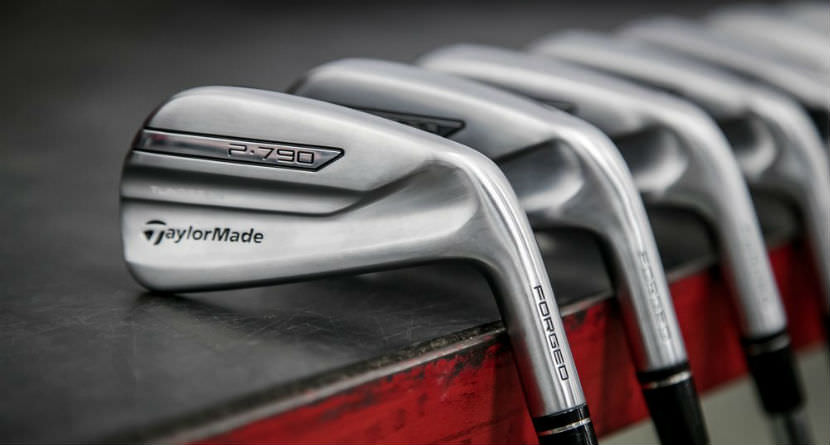The latest golf manufacture showdown may have already begun. On Tuesday, it appears PXG has filed a lawsuit against TaylorMade for patent infringement from their new P790 irons. PXG CEO Bob Parsons broke the news himself when he tweeted that the company sued TaylorMade in Federal court on Tuesday.
Per Bob Parson’s Twitter account, PXG has filed a lawsuit in federal court against TaylorMade Golf, citing “many” patent infringements resulting from the company’s new P790 iron.
While neither TaylorMade nor PXG has offered any official statement, one has to think the basis for the suit has to do with the injection filled, hollow-body construction that is the foundation of most PXG products. While PXG uses thermoplastic elastomer and TaylorMade uses a TPU-based SpeedFoam, if the patents are broad enough, the material won’t matter. This case will likely boil down to process and construction, not the material composition of the goo.
Taylormade Golf’s new P790 irons infringe upon many PXG patents. Sued them in Federal court today!
— Bob Parsons (@DrBobParsons) September 12, 2017
Some knee-jerk pundits and keyboard jockeys will (and already have) falsely label Parsons a “jerk” or “bully” based on the limited information shared in his tweet. Not that the Twittersphere is a place where people ever cast false aspersions, but let’s be clear – Bob Parsons had to do this, if for no other reason than to make it abundantly clear, he’s not going to be pushed around by any company, big or small. His entire golf business is built on this technology, if somebody else can use it, it’s a problem.
Failure to protect the defining technology upon which PXG clubs are based would invariably open up the floodgates; leaving the technology free for any OEM to mimic or copy without fear of recourse.
With Parsons pursuing a suit, a line has been drawn in the sand. In protecting the primary asset, Parsons removes any doubt as to his position or the lengths he’ll go to secure the viability of PXG’s defining technology.
Moreover, it’s a proxy statement within the industry of David defending himself against Goliath. Often smaller (by market-share) OEM’s can’t swallow the massive legal costs necessary to engage in what could be a prolonged, and costly, legal process. Financial resources don’t pose the same issue for Parsons.
Should PXG prevail, it would be a massive blow (and more than a little embarrassing) to TaylorMade’s efforts to regain momentum after losing its position atop the industry this year to rival, Callaway.
BREAKING: PXG SUES TAYLORMADE FOR PATENT INFRINGEMENT
FULL STORY: https://t.co/18ol8pbRCr pic.twitter.com/FO5CwXHwz5
— MyGolfSpy (@MyGolfSpy) September 13, 2017
That said, it’s reasonable to think a drawn out legal battle is exactly what TaylorMade’s new owner (private equity firm KPS Capital purchased TaylorMade for $425 Million in May) wants to avoid – and should it want this matter to disappear quickly, that would likely work in PXG’s favor.
The upside for TaylorMade, and indeed the risk for PXG is that consumers may link the two technologies. If PXG is viewed as the same as TaylorMade, its perceived performance advantage would be significantly and perhaps irreparably diminished.
To be certain, golf companies sue or threaten to sue, each other with alarming regularity. To no small degree, the action itself cements PXG’s position within the industry. It’s now part of the status quo.
Stay tuned. Things seem to be just heating up.
— — —
Keep yourself up-to-date with the latest goings-on in the world of golf by following the SwingxSwing Clubhouse on social media. We share stories, stats and breaking news on Twitter, keep the fun going off the course on Instagram and share any and all golf-related topics on Facebook.
Never be the odd golfer out when your friends are talking about the latest or funniest happenings in golf. Sign up for the SxS newsletter today!




